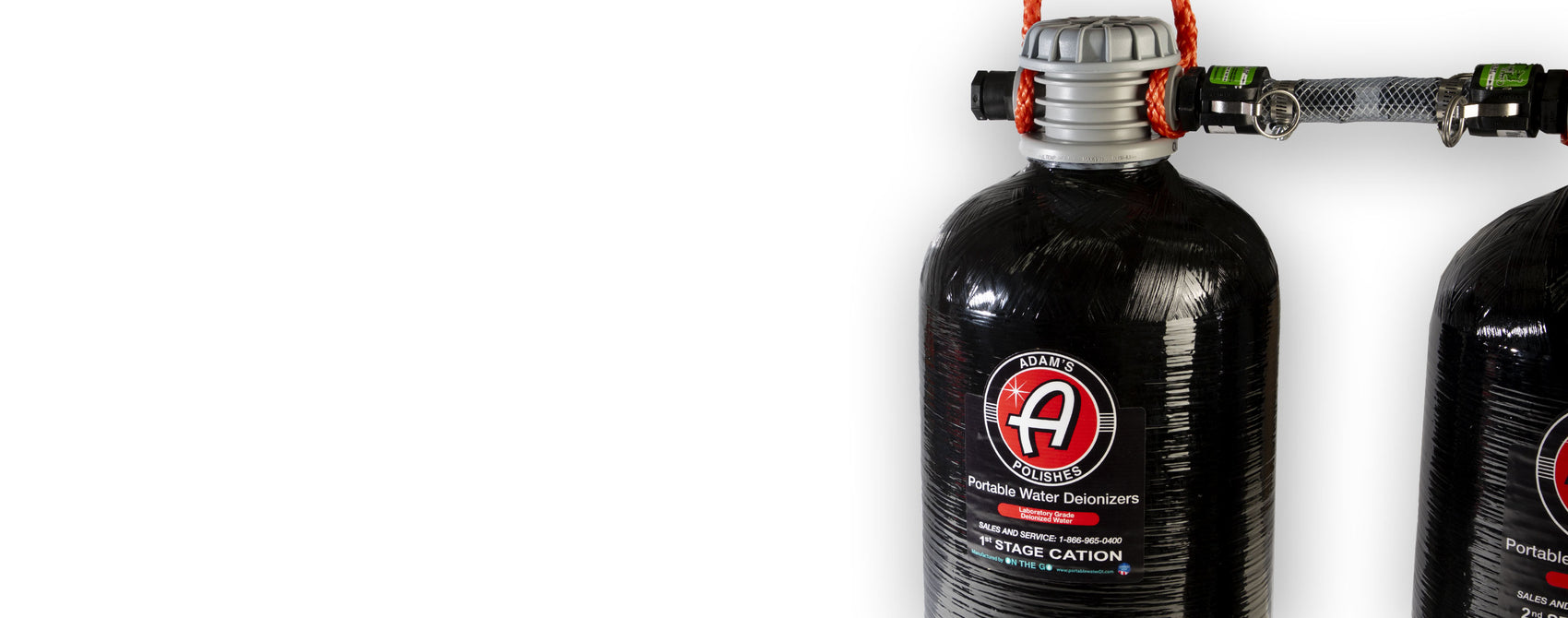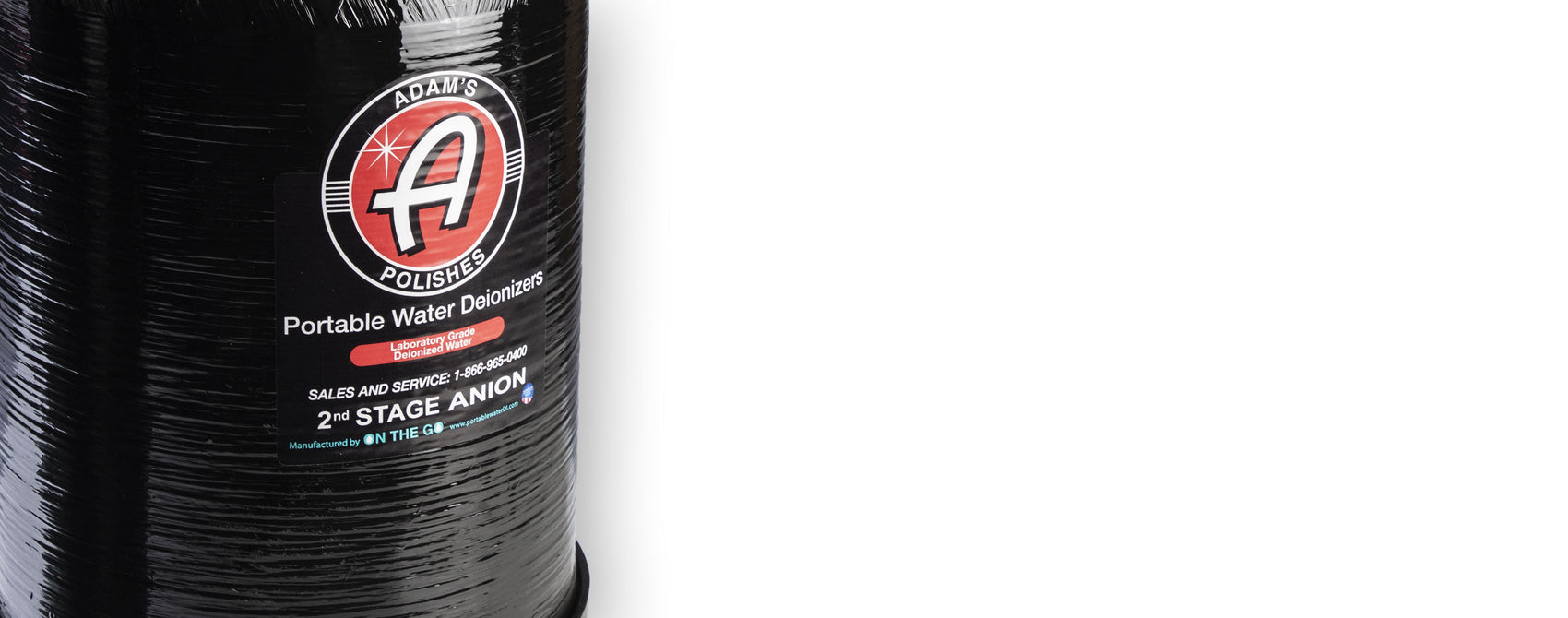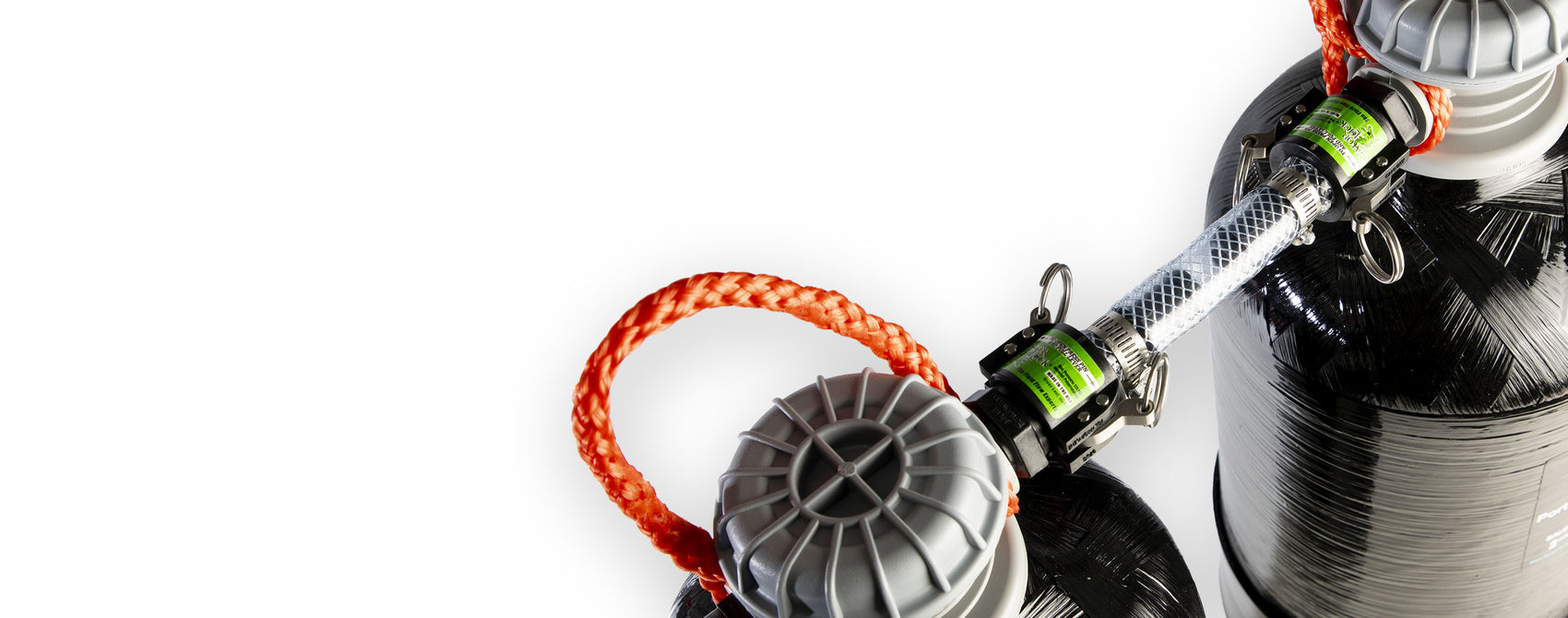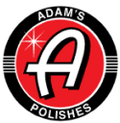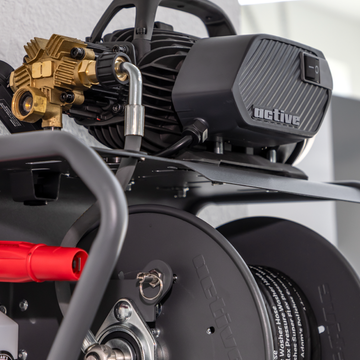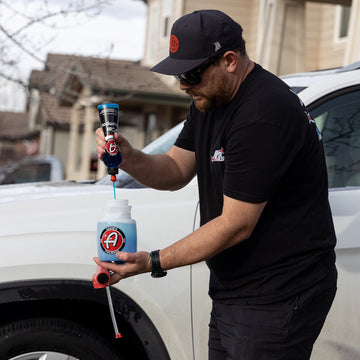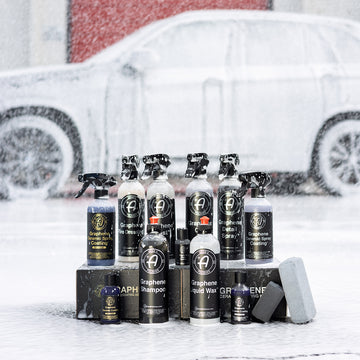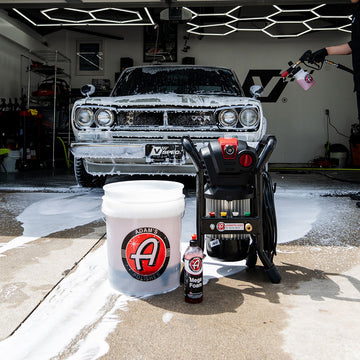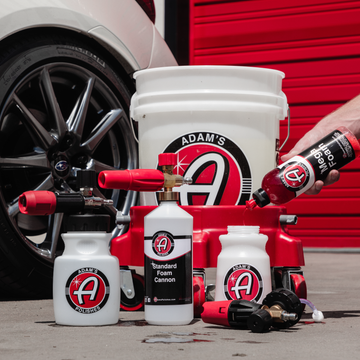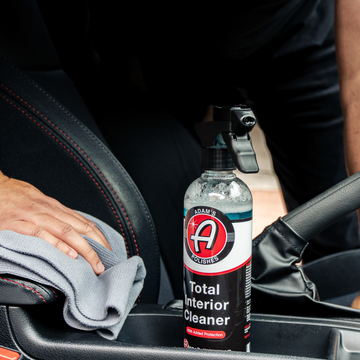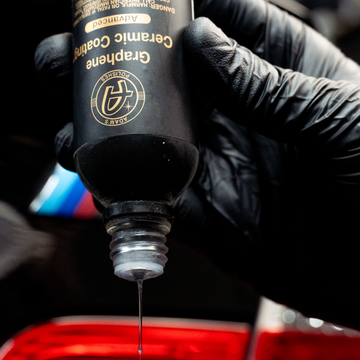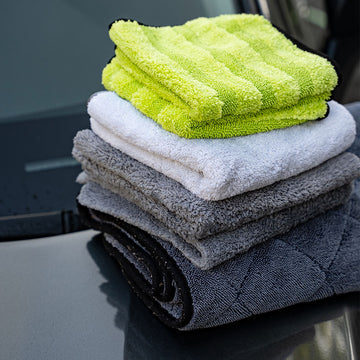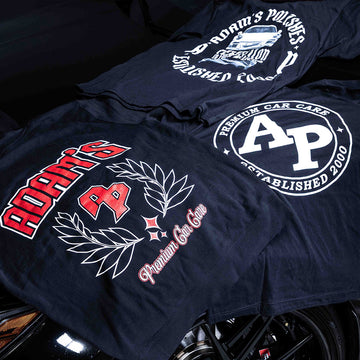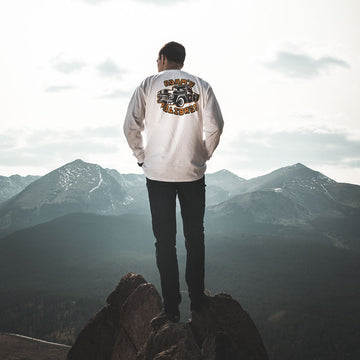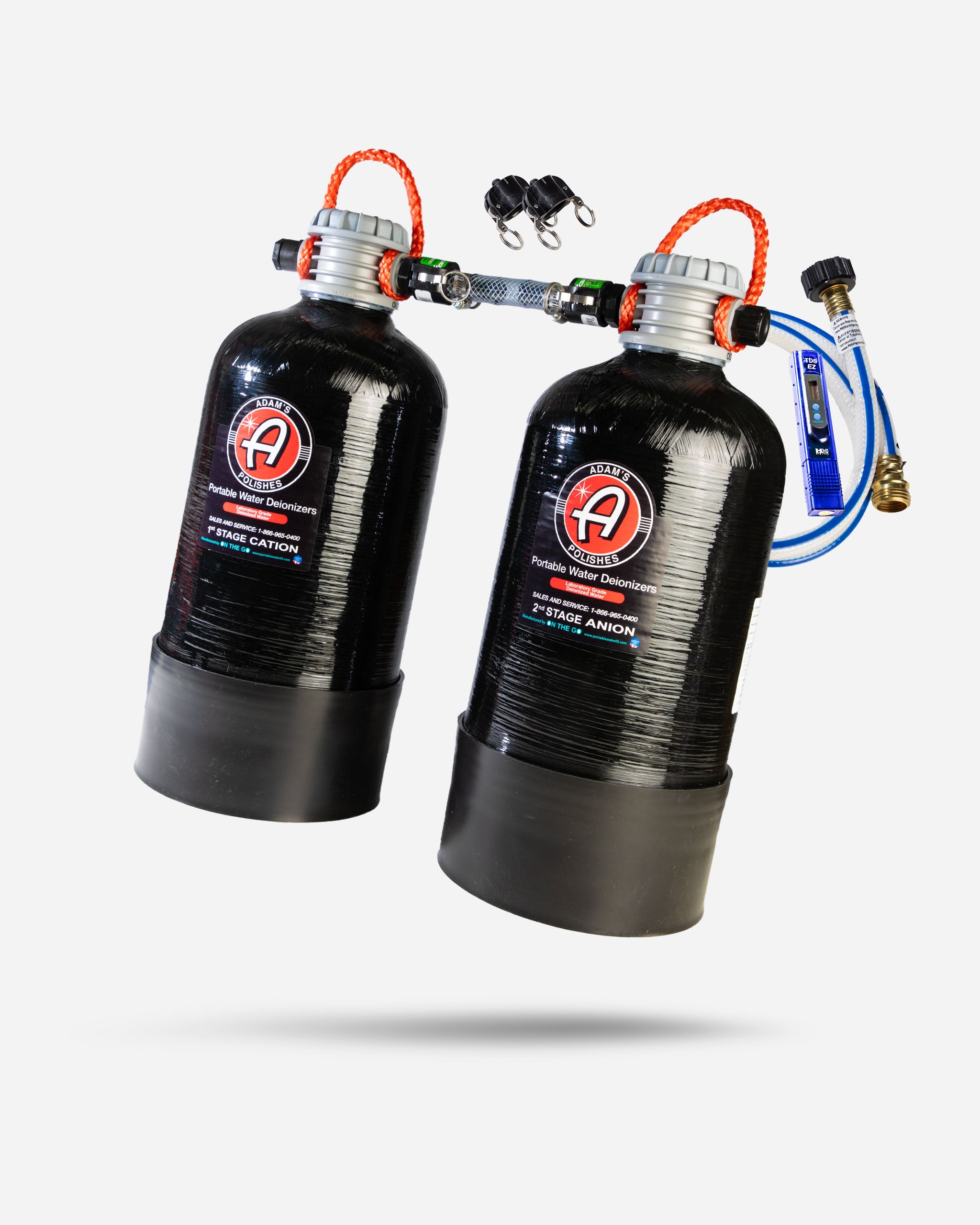
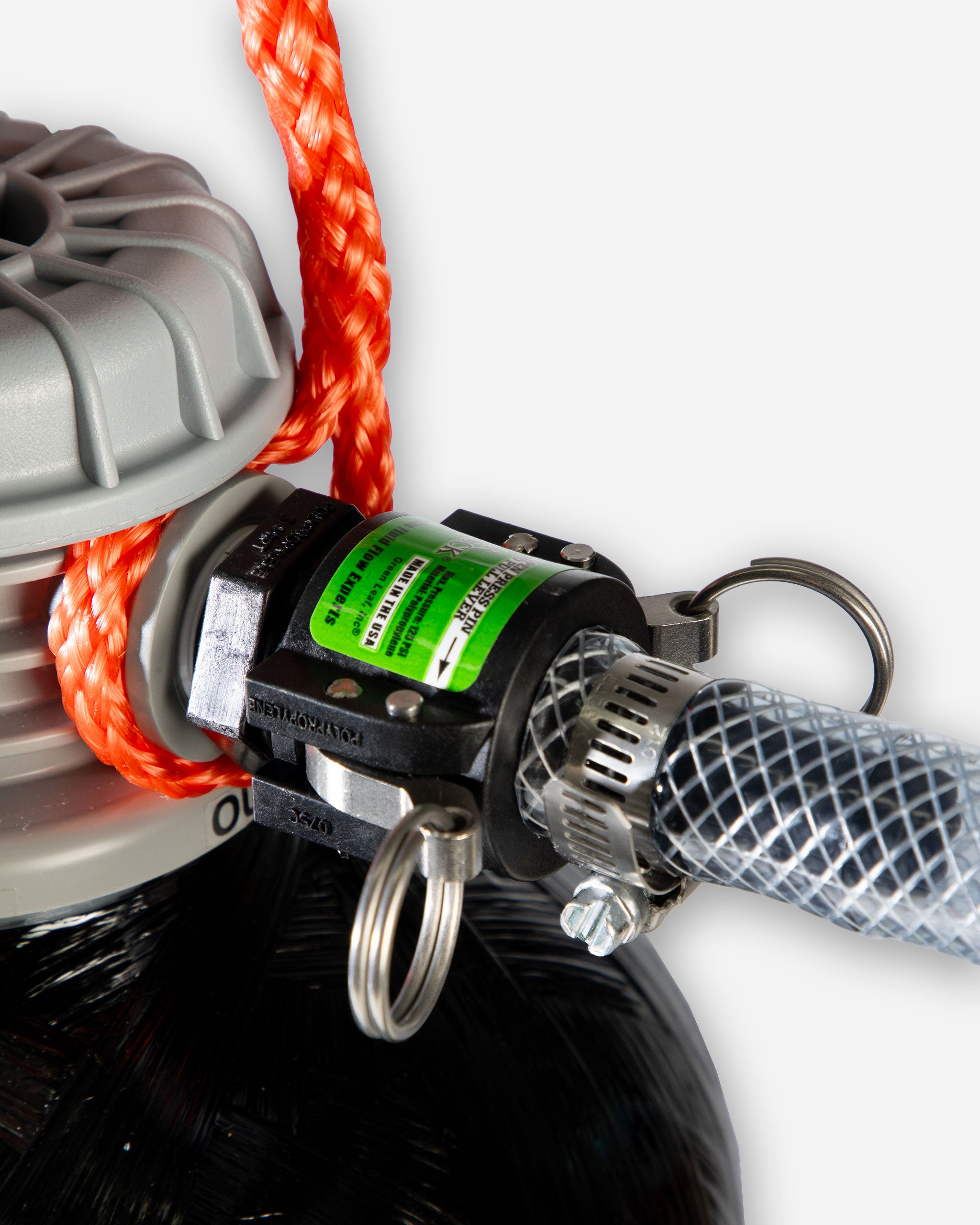
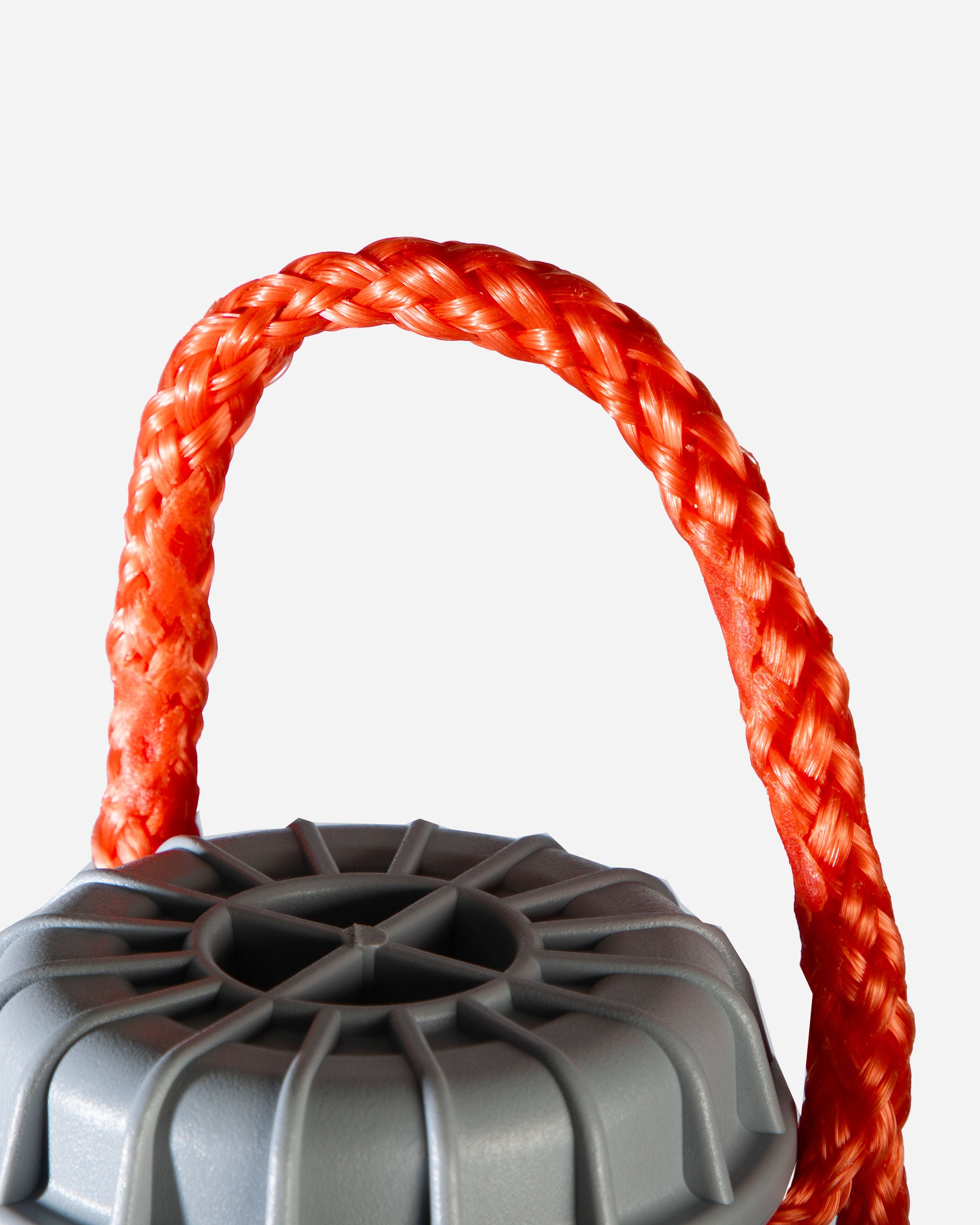
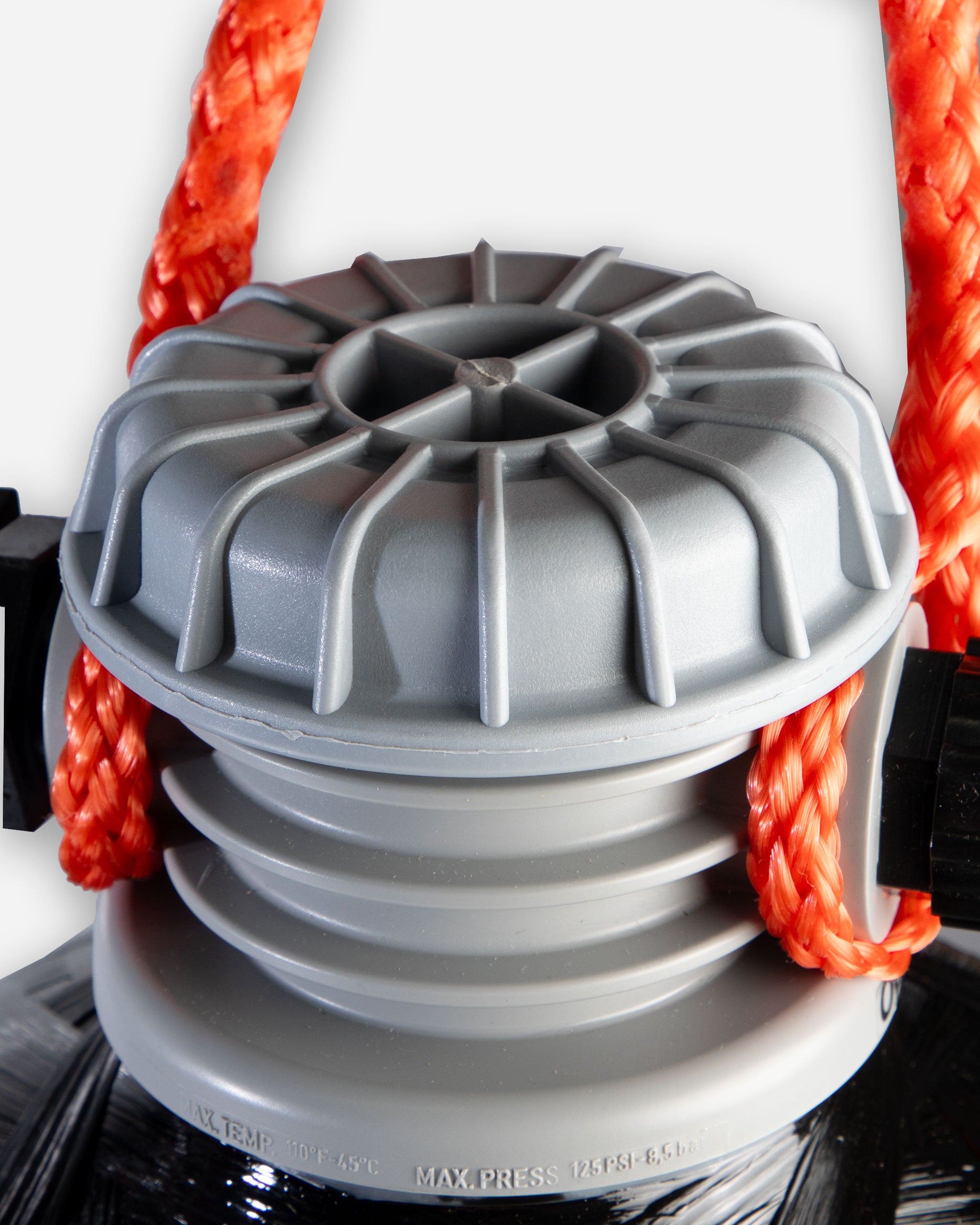
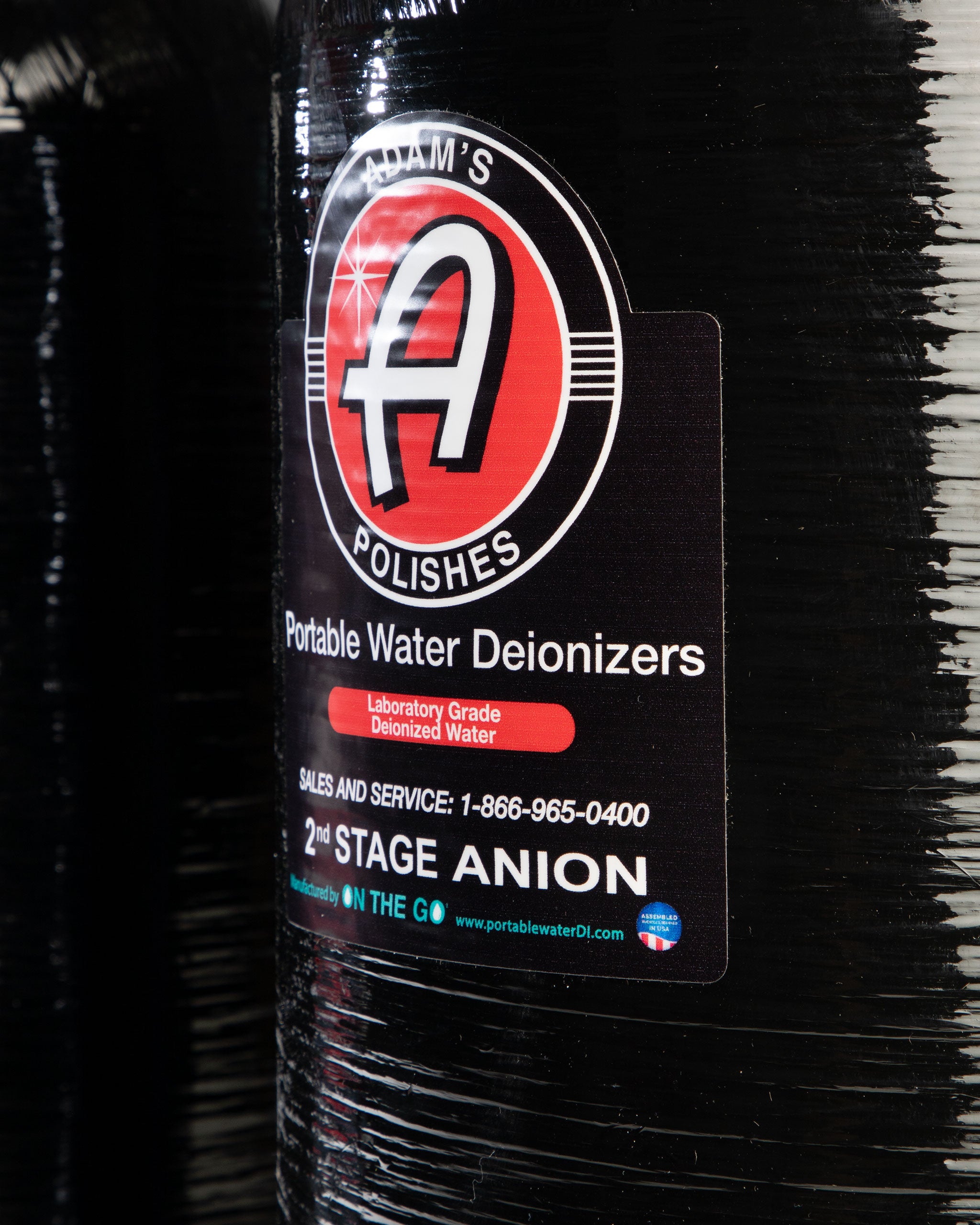
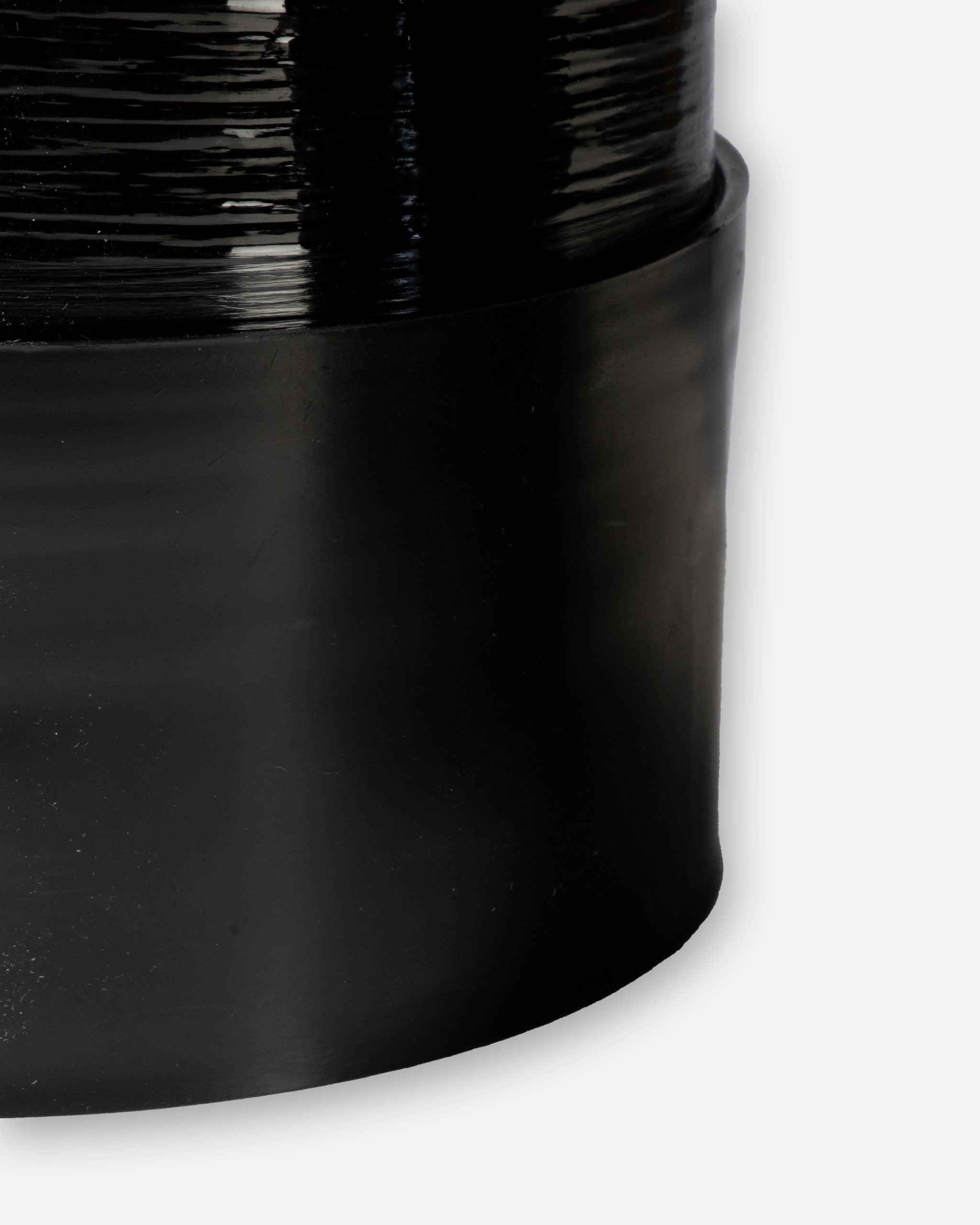
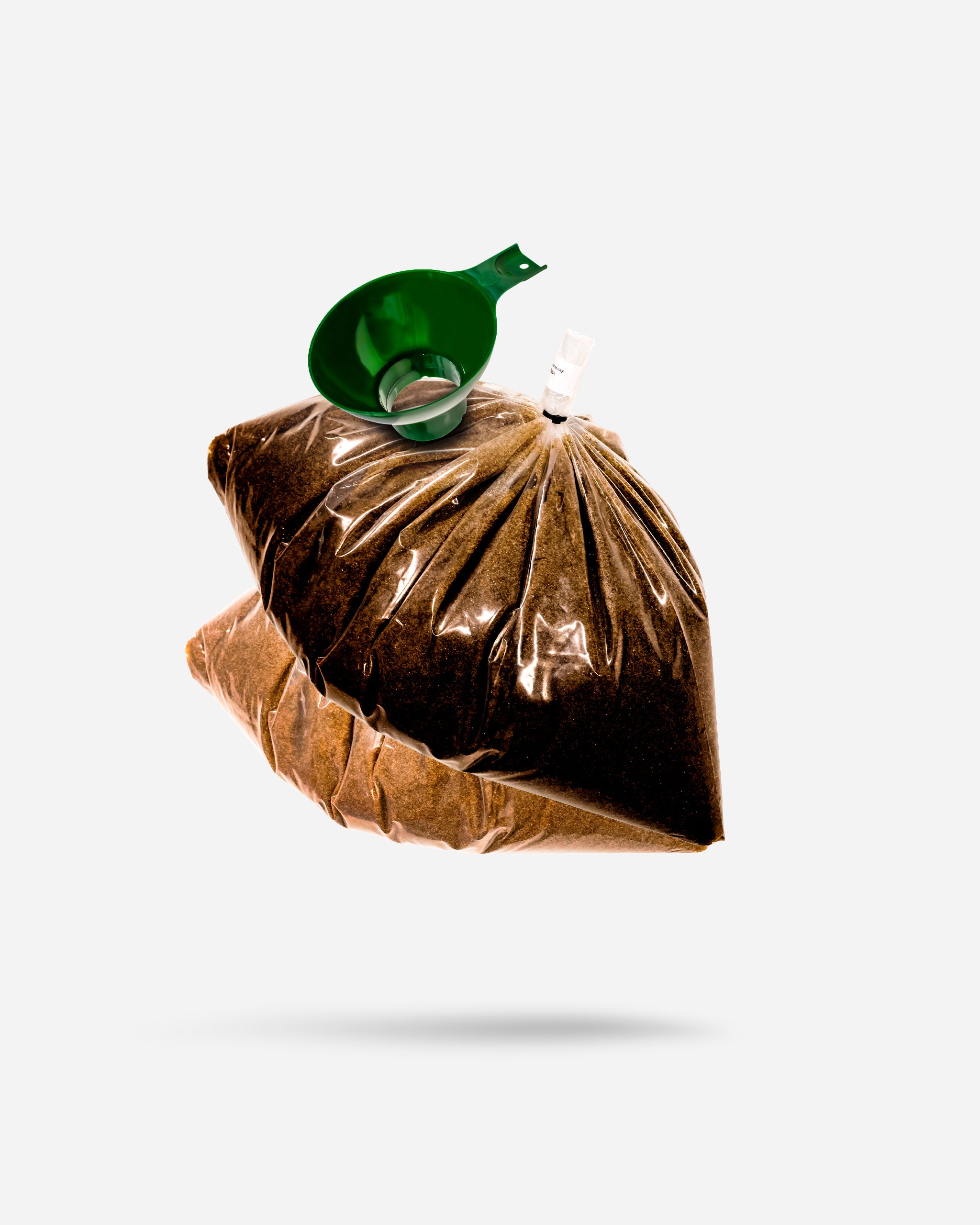



Adam's Dual Bed Standard Portable Spotless Water Deionizer
Not Eligible For Discounts. Dual Bed Standard Does Not Include Bypass.
Please Note this Item will Drop Ship from the Manufacturer 5-7 day shipping.
Do you have hard water spots on your vehicle? Adam’s Polishes in collaboration with On The Go, an American Business, has developed a small compact deionizer unit to provide a large supply of laboratory grade deionized water for a spot free water. These powerful units can be attached to your household water supply to effectively filter hard minerals out of your water supply to give you a spot free rinse.
- Deionizers Come Filled With Resin
- Resin Refill is 1 20lb Cation Refill & 1 20lb Anion Refill
- Dimensions: 2 Units @ 22" Height x 9.5" Diameter
- Dual Bed filters up to 2,520 gallons (@100ppm of TDS) of hard minerals out of water supply (No Bypass Included)
- Preloaded Cation Tank and Anion Tank With High-Grade, Non-Regenerated Resin
- TDS Meter And 4 Ft. 5/8" Water Supply Hose Included
- Unit Will Produce Water @ A TDS Of Zero Out Of The Box
- Resins on The Dual Bed Will Produce a Fishy Scent But are Highly Effective
We currently offer free shipping in the continental US on orders over $75 after discounts or $7 Flat Rate Shipping. If you don't love what you receive, we'll cover shipping back to our door too. Please note, free returns are not included on international orders.
FAQ's:
-How many gallons will the standard unit produce?
The capacity of a deionization systems is primarily determined by the Total Dissolved Solids (TDS) in the water source. The TDS can be measured by using the meter provided. The TDS can range from 0 to 1,000 PPM plus but typically will fall between 100-400 ppm across the US.
Example: @ 100 ppm of TDS = 1,120 gallons
- What value of PPM will leave my vehicle with a spot free rinse?
We have provided these ranges over the years:
Excellent level: less than 15 ppm
*Satisfactory range: Greater than 15 ppm but less than 50 ppm
Unsatisfactory level: Greater than 50 ppm
*Depends on coloration of vehicle, degree of stainless and one’s individual acceptance level
- Does this reduce my water pressure?
There is a small pressure drop and should not be noticeable.
- When should I replace the resin in the tank?
An acceptable TDS ceiling will vary from customer to customer and is greatly dependent upon the coloration of the vehicle. Most customers will operate between 20-40 ppm of TDS, mid-thirties seems to be a fairly wide acceptance level. We would recommend the use of the rather accurate digital TDS meter and measure the TDS during your first cycle thus quantitatively obtaining your preferred level.
- Is it safe to drink?
We do not recommend drinking the water.
- DI water has all the nutritional value removed
- DI has an operating cost generally higher than drinking water
- DI tends to have a unique taste and odor
- Can I water my plants with Di water?
You really don’t need purified water for your plants thus we would not recommend.
- Can I run heated water through the Di tank?
The DI has a max temperature of 105 degrees Fahrenheit.
- Can I hook my pressure washer up to the outlet of this Di unit?
Yes, ensure the flow rate of the HPW is within the optimum operating range [0.5-2.5 gpm] of the DI unit and never greater than maximum of 3 gpm for best performance.
- Should I use Di water for my entire car wash?
You can, but many will use only for the final rinse.
- How does a Deionizer work?
“Deionized Water”-Simply said, water flows over porous beads that are positively and negatively charged and the minerals or total dissolved solids are removed. These ion exchange columns are porous beads called exchange resins producing laboratory grade water.
- Will this harm my paint on my vehicle?
No, DI water used to obtain a spot-free rinse has been used for applications including Auto’s/Class A RV’s/Small airplanes/Motorcycle’s/both residential & business windows plus many car washing businesses use this for their final rinse.
- How long is the Tank good for if not used?
The resin has a shelf life of 18 to 24 months.
- What do I do with the used resin once I refill the tank?
The resin is non-hazardous and can be disposed through normal waste disposal processes. Always dispose in accordance with federal, state and local regulations.
- Can I use this with Adam's Soaps?
Yes.
- Is DI water safe to go down a drain?
Yes.
